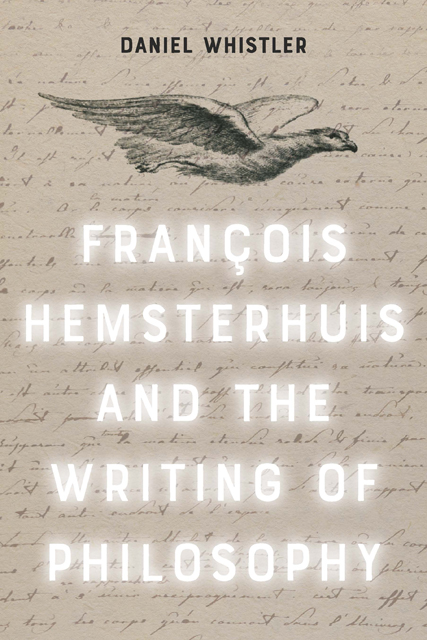Chapter Three - Organs, Instruments and Insects
Published online by Cambridge University Press: 03 June 2023
Summary
Exceptional is the opinion Hemsterhuis had that there could be very many completely new and unknown senses.
Friedrich Schlegel (1958–2002: 18.550)Germs of future organs – perfectibility of organs. How make something into an organ?
Novalis, Hemsterhuis-Studien (1960–2006: 2.368)§10 Insectification
Hemsterhuis’ Lettre sur l’optique serves as both his final philosophical treatise and a recollection of some of his earliest research. Sent to Gallitzin on 23 December 1788 (and handed over, after his death, into Goethe’s possession), it both recalls his research from the 1740s and 1750s on ‘the organs of insects and the nature of their ideas and their way of thinking’ (B 8.87, 193) and stands as the culmination of ‘my long work on practical optics … the fame of which reached Italy’ (B 4.52, 127). In the final years of his life, Hemsterhuis is keen to emphasise that he had ‘worked more than fifty years on optics both theoretical and practical’ and that ‘if I have at any time loved a science to distraction, it was above all my dear optics’ (B 8.83, 197).
The argument to the 1788 letter opens as follows:
One of the most beautiful labours of man to ameliorate his composition has been without doubt that by which he has amplified and perfected his organ of sight. It seems to me interesting to determine precisely the present state of the science of optics, so as to consider, first, what paths have been taken to reach the perfection of our days; 2. What chances there are of making further progress down these paths; 3. Whether there aren’t other paths still to be taken that will achieve a completely new type of perfection. (B 9.72, 156)
In the Lettre sur l’optique, Hemsterhuis is therefore interested in efforts to perfect the organ of sight via technological and artificial media. And these efforts will in turn serve as a model for the perfecting of every other organ. Telescopes and microscopes take on paradigmatic status not just in the optical sciences, but more generally as exemplary means for radically amplifying all of human perception.
1. The first half of the Lettre sur l’optique follows the sequence of tasks set out above by first considering the progress made by ‘the physical part’ of the science of optics (B 9.72, 156).
- Type
- Chapter
- Information
- Francois Hemsterhuis and the Writing of Philosophy , pp. 105 - 156Publisher: Edinburgh University PressPrint publication year: 2022



